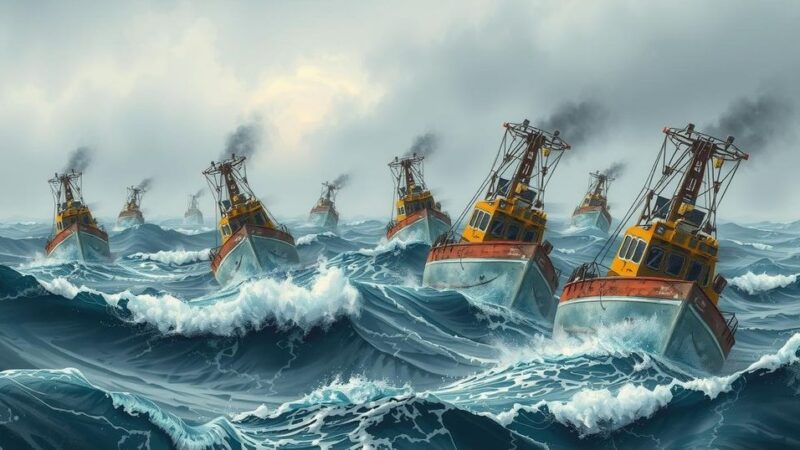The Trump administration is moving to repeal environmental protections in Alaska, allowing drilling. Meanwhile, Japan develops seawater-soluble plastic to fight pollution, Colombia’s wind projects face setbacks, and the UK could incur $1 billion in carbon taxes amidst EU market link delays.
Fast Summary: The Trump administration plans to repeal environmental protections in Alaska’s National Petroleum Reserve, opening ecologically sensitive areas to drilling. In Japan, scientists are developing seawater-soluble plastic to combat waste. Colombia’s wind energy sector is hindered by major firms withdrawing due to regulatory and social tensions. Meanwhile, Britain faces the threat of $1 billion carbon taxes as links between its carbon market and the EU are delayed.
Article Body: The Trump administration is taking significant steps to open up Alaska’s National Petroleum Reserve for oil and gas exploration. This decision involves repealing environmental protections that were enacted during President Biden’s tenure. The change is part of what Trump calls his “drill, baby, drill” policy—aimed at increasing fossil fuel extraction. Environmentalists, however, are sounding alarms about potential damage to sensitive ecosystems. Matt Jackson from The Wilderness Society highlighted concerns: “This move will accelerate the climate crisis at a time when the ground beneath Alaska communities is literally melting away and subsistence foods are in decline.”
In a noteworthy development out of Japan, scientists in Wako city are making strides with a type of plastic that dissolves in seawater. The material aims to address the looming plastic pollution crisis, pointedly predicted by the UN Environment Programme, which estimates a massive increase in plastic production by 2040. The new plastic dissolves quickly and leaves no waste—far faster than typical biodegradable types. Importantly, it’s non-toxic and non-flammable. These characteristics may one day change how we view and use plastic altogether.
The renewable energy landscape in Colombia is facing turbulence. Major companies, like Enel and EDP Renewables, have suspended their involvement in wind projects in the La Guajira region. With social tensions escalating, especially from the Indigenous Wayuu community, and compounded by government delays, progress has stalled. Currently, only two wind farms generate a meager 32 megawatts of electricity. In light of these challenges, Colombian-owned Ecopetrol is pushing forward with plans for new wind and solar energy initiatives aimed at achieving a capacity of 1.3 gigawatts by 2050.
Britain is on the brink of facing up to $1 billion in carbon taxes as the clock ticks down to 2026, and the linkage with the EU carbon market remains uncertain. The British government is trying to maneuver the complexities of carbon trading amid potential regulatory rollbacks post-Brexit. Experts are expressing skepticism about a seamless integration before 2028, which could result in significant costs. As diverse as these challenges are, many companies across Britain must stay aware of emerging ESG tools that can help navigate these tumultuous waters.
Conclusion: The recycling of policies around fossil fuels in the U.S., innovations in plastic recycling in Japan, the stalling wind efforts in Colombia, and the carbon tax threat in the UK paint a complex picture for the global ESG landscape. Each region grapples with its own set of challenges, whether it’s environmental protection or renewable energy implementation. Stakeholders must stay engaged and informed as these issues evolve.
The unfolding scenarios—be it the climatic implications of drilling in Alaska, innovative recycling efforts in Japan, or the complexities of renewable energy in Colombia—underline the multifaceted nature of global ESG issues. With the looming carbon tax in the UK adding further tension, it’s clear that those engaged with environmental and sustainability questions today must keep a close ear to the ground as policies and technologies shift.
Original Source: impakter.com






